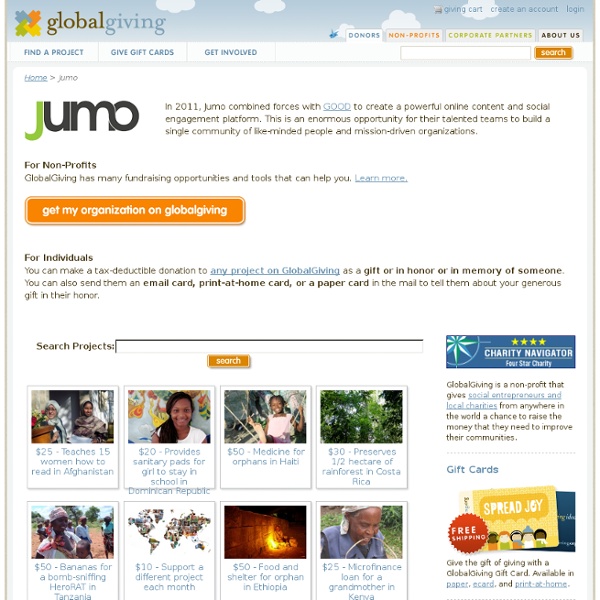



Les outils collaboratifs renforcent-ils la cohésion de l'entreprise ? Afin d'éviter le débauchage de salariés, les compagnies ont intérêt à rassembler leurs équipes de recherche en groupes de travail. Réels plus que virtuels, ces derniers visent surtout à souder des liens existants. Pour éviter que les individus talentueux associés autour d’un projet, ne soient encouragés par la concurrence à quitter l’entreprise, il faut renforcer le travail d’équipe, notent dans un rapport des chercheurs de l’université Carlos III de Madrid. Les scientifiques se sont intéressés à une entreprise high-tech en particulier : IBM. Préserver l’unité du groupe Avant d’ajouter : "sans compter qu’il est bien entendu plus difficile de démarcher un groupe entier plutôt que quelques individus". Restructurer le travail collaboratif "On peut tout à fait avoir des logiques communautaires, avec à la fois des sous-groupes, et des zones de recouvrement", développe le spécialiste.
Click to Cure - Cancer Research UK and Zooniverse eLearning Technology As part of the Big Question this month Open Content in Workplace Learning?, I’m exploring whether Open Content can be used by for-profit companies. And, since Open Content comes in under the Creative Commons license structure. Actually, I’m curious if Open Content ever is not Creative Commons? It’s by definition Open, but theoretically you could choose a different open license. In any case, to understand the use of Open Content, it’s important to understand Creative Commons licensing. Creative Commons Licensing Terms Creative Commons licensing terms. Attribution (CC-BY) – Allows others to copy, distribute, display and perform a copyrighted work – and derivative works based upon it – but only if they give credit. Licenses may have one or more of the following permissions or restrictions: Non-Commercial (NC) - Allows copy, distribute, display and perform a work – and derivative works based upon it – but for non-commercial purposes only. These get combined into one of six licenses: Help
EnviMotion Memetics | Meme Hacking At PivotCon 2010, Douglas Rushkoff made some extremely cogent arguments about why brands cannot go viral on social networks — even when there’s plenty of activity on companies’ websites and Facebook pages — and why it’s pointless to try to push brand concepts (such as mascots) around as memes in the expectation of driving actual product sales. This talk is exceptionally amusing both for its venue — he’s at a branding conference talking about social media — and for the fact that he opens the talk by saying, essentially, “you think you’re talking about what’s happening, but you’re not.” He managed to rankle more than a few career marketeers who oversimplified his message to mean “marketing is evil”; the mild antagonism to this particular audience inherent in his message did not go unnoticed by PivotCon organizer Chris Shipley who made no bones about the reason they decided to schedule his talk dead last.
Think Free Why Open Content is Not Yet Adopted in the Workplace ASTD's Big Question for March is How do we leverage open content in workplace learning? The concept seems straightforward--a no brainer, take content that is used by many different organizations, and share it with others so that the overall cost is extremely low or free. Many organizations are involved with such initiatives. One of the best known is MIT's Open Courseware project. But they are not the only initiative, there is the Open High School of Utah and the Flat World Knowledge project that is focusing on creating open, low cost books and Yale Open courses offers select introductory courses online. And the concept seems to be gaining momentum. A quick definition from the article: The term "open educational resources" was first adopted at UNESCO's 2002 Forum on the Impact of Open Courseware for Higher Education in Developing Countries funded by the William and Flora Hewlett Foundation. Unfortunately, there seems to be some compelling reasons open initiatives have not taken off:
Réseau social : Devoteam dresse un bilan des 6 mois de la phase pilote Weez, le réseau social interne de Devoteam, basé sur Jive, quitte sa phase pilote pour être lancé officiellement. Des 6 premiers mois d'utilisation, la société de conseil et de services tire de nombreux enseignements. En termes d'adoption, la société affiche de beaux résultats. Sur les 4 500 collaborateurs de l'entreprise, pratiquement un quart d'entre eux se connecte chaque jour à la plate-forme. Le terrain était, il est vrai, favorable à la mise en place d'un réseau social d'entreprise. Des espaces de rencontre informels avec les utilisateurs A l'instar d'Alcatel-Lucent, qui a également déployé un réseau social basé sur Jive, elle propose des espaces de rencontre informels à l'heure du café pour aller au-devant des utilisateurs et répondre à leurs questions. Elle s'est également appuyée sur la diffusion de vidéos réalisées par les consultants eux-mêmes et a nommé des « Weez Ambassadors » pour assurer la promotion de la plate-forme. Des bénéfices business déjà perceptibles
World Community Grid - Home When online communities go to work | Enterprise Web 2.0 | ZDNet.com There are now in fact workable ways for companies to engage and collaborate with large groups of people that greatly outnumber their workers. While debate still occurs about whether consumer social networking is an effective model for how we should run our organizations in the future, one under-appreciated online phenomenon has been quietly and steadily remaking the very notion of business itself. People have been joining online communities by the millions for years now for a variety reasons, including both business and pleasure. These increasingly massive and mainstream communities focus on virtually every subject imaginable including news (Slashdot & Digg), open source software (Sourceforge), photography (Flickr), enterprise software (SAP), business innovation (Innocentive), travel (TripAdvisor), retail products (IKEAFans, Best Buy Community), consumer electronics support (Fixya), Web design (Crowdspring), charity (Feed A Child With A Click), and countless others.
John Seely Brown: Chief of Confusion MomsRising